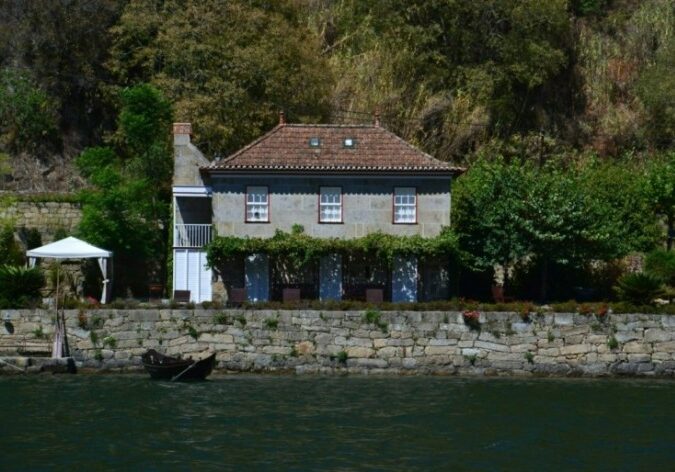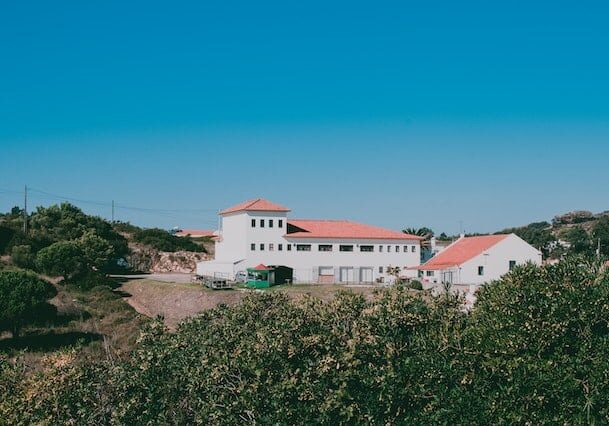Updated: January 20, 2025
The Portuguese real estate market presents an alluring opportunity for investors, with the possibility to secure a strong return on investment in many key areas across the country. If you are considering renting out your Portuguese property in the short term, you will need to obtain an Alojamento Local license – or AL license for short.
Alojamento Local licenses are issued by the Câmara Municipal (local council town hall) and are required if you are going to rent your property out in the short term, for example, as guest houses on Airbnb.
As of 1 November 2024, many of the Mais Habitação measures that restricted the issuing of AL licenses were revoked. In this article, we present a rundown of what an AL License is, the latest changes to securing an AL license, and essential practical information for prospective investors to be aware of.
What is the AL License?
The AL License is a license that investors are required to have in order to rent out their property short-term. Though initially straightforward to obtain, regulations presented under the Mais Habitação (More Housing) Package (officially referred to as Law No.56/2023) in 2023 heightened the challenge for Portuguese investors seeking to leverage the nation’s thriving tourism industry by renting out their apartments on a short-term basis. As of 1 November 2024, however, many of these restrictions were revoked.
 What were the More Housing Bill 2023 restrictions?
What were the More Housing Bill 2023 restrictions?
Following the More Housing Package, the issuance of new licenses for short-term rentals in specific locations and categories was suspended. Notably, no new licenses are currently being granted in Lisbon or the Algarve, in addition to:
- ALs being required to clearly display their registration number
- Existing licenses have to be renewed every five years
- Limits on the number of AL units in multi-unit buildings
It’s important to note that new AL registrations were still feasible under the More Housing Bill, including:
However, as mentioned, as of 1 November 2024, many of the Mais Habitação measures affecting AL licenses were revoked.
Revocation of More Housing Program Measures Affecting AL Licenses
In the context of the Portuguese government aiming to implement measures to encourage greater supply and strengthen confidence in the rental market, alongside promoting accessibility in the housing sector, the government has created conditions to better align and reconcile AL (local accommodation) establishments with the residential market.
The Portuguese government has introduced crucial amendments to the legal regime for local housing under Decree-Law No. 76/2024, published on 23 October 2024. These changes to the legal regime for local housing (stated in Decree Law No 128/2014 of 29 August) roll back certain restrictions that were imposed by the Mais Habitação (More Housing) program in 2023.
From 1 November 2024, these new changes came into force.
What are the changes?

Municipalities now have the authority to approve an administrative regulation regarding AL activities in their respective territory. Municipalities with more than 1,000 registered accommodations are subject to a one-year deadline (counted from the day they reach the 1,000) to declare whether or not they will exercise this power to establish regulations.
To guarantee the effectiveness of the municipal regulation, municipalities may, by a reasoned resolution of the municipal assembly and upon proposal by the municipal council, suspend authorizing new registrations in specifically designated areas for a maximum period of one year until the regulation comes into force.
In short, this package, to respond to problems and complaints associated with the AL, has revoked the following:
- Suspending the issuance of new registrations of AL establishments;
- Expiry of inactive registrations when there was no proof of the maintenance of the activity;
- Non-transferability of licenses;
- The requirement to review in 2030 all existing records on the date of publication of the Mais Habitação program (2023); and
- The rule providing that AL registrations were valid for renewable five-year periods
In addition to this, the condominium assembly of a building where an AL is installed in an autonomous unit or in part of a building suitable for independent use is given the power to oppose the operation and can request the municipal president to cancel the registration.
This is done through a reasoned resolution approved by more than half of the building’s co-ownership shares, grounds based on the disruption of the normal use of the building, or that causes inconvenience and disturbs the peace of residents. As an alternative to canceling the registration, the municipal president can also invite the parties – with the assistance of the Ombudsman (if applicable) to close the process through the acceptance of commitments and conditions.
Below, we provide further clarification on some of the most important aspects of the changes.
 Municipalities have the authority to approve administrative regulation regarding AL activities
Municipalities have the authority to approve administrative regulation regarding AL activities
It’s important to bear in mind that municipal regulations may reintroduce restrictions, validity and limits on the transfer of licenses. To preserve the social reality of certain neighborhoods and locations, the new decree-law states that municipalities will be able to approve containment areas and sustainable growth areas, by parish or union of parishes, in part or as a whole, where it will not be possible to secure a new AL.
- Containment areas are defined as areas where there is an overload in accommodation establishments that justifies restrictions on the installation of new establishments.
- Sustainable growth areas are defined as areas where special monitoring and oversight measures are warranted to prevent.
Note that these areas need to be supported by specific studies and reassessed every three years, allowing limitations on new registrations and their transfer as “villa” and/or “apartment”.
The new rules allow for the containment and sustainable growth of areas within municipal regulations. Regulations now allow commercial establishments and services to be installed in properties that were constructed before 1951, provided they meet certain legal requirements. Under the new regime, oversight of AL rules is solely the responsibility of municipalities and ASAE (Food and Economic Safety Authority), removing the authority previously held by parish councils.
 Local accommodation Ombudsman created to handle disputes
Local accommodation Ombudsman created to handle disputes
On a municipal level, a local accommodation Ombudsman has also been established. They will assist in managing disputes amongst residents, owners of AL establishments, and condominium owners or third parties, in addition to evaluating complaints and providing recommendations on the operation of ALs.
 Maximum capacity of AL establishments
Maximum capacity of AL establishments
Changes have also been made to the maximum capacity for AL establishments, reducing capacity to a maximum of 9 rooms and 27 uses, except for “rooms” and “hostel” types (previously allowed up to 30 users). If establishments can accommodate more, they will need to install convertible or supplementary beds as long as the total does not exceed 50 percent of fixed beds.
What do the latest changes mean in practice?
With these significant changes, the government intends to strengthen AL activity, providing guarantees of legal certainty and stability, while also taking into account concerns surrounding the economic and urban impacts of the activity in Portugal over the past few years.
By giving authority to municipalities to approve the administrative regulation of AL licenses, these changes are welcome for property investors looking to invest in short-term rentals in the country, whereby the possibility to secure new AL licenses now lies with municipalities, removing restrictions that were put in place under the Mais Habitação Bill.
Obtaining an AL License
So, you have a lovely modern apartment in Portugal, and you’re looking to make a little extra cash on your investment. Perhaps you’re only in the property for part of the year and want to rent it out as a guest house while you are not in the country? Well, you’ll need to obtain an Alojamento Local license.
To secure an Alojamento Local Portugal license, you will need to provide the necessary documents to the Câmara Municipal. An important aspect to consider is ensuring that all electric and gas installations fulfill the required standards.
General Conditions for the AL License
Alojamento Local license holders will need to meet the following general conditions. The Food and Economic Security Authority (ASAE) can carry out inspections to make sure all the legal requirements are followed, so it is important to ensure that everything is in order.
- The internal and external premises need to be maintained and in good condition. There needs to be an adequate standard of cleanliness and hygiene.
- The cleaning of the premises, including the changing of bed linen and towels, needs to take place at least once per week or whenever there is a new guest.
- There needs to be a private system with a controlled water supply, or the premises must have mains water connected.
- The premises need to be supplied with both hot water and cold water.
- The premises need to be linked to the main municipal drainage system or have a septic tank adequate for the number of guests.
- The premises must have one private bathroom with a toilet, wash basin, and shower/bath for every three bedrooms.
- Each private bathroom needs to have a secure lock system to ensure the privacy of occupants.
- Each room that is to be occupied by a guest needs to have a window or balcony with direct access to the outside so that there is adequate ventilation.
- Each room that is to be occupied by a guest needs to have a means of blocking external light.
- Each private room to be occupied by a guest needs to have a locking system to ensure the privacy of occupants.
- The premises must observe general rules with respect to fire safety. There needs to be an adequate number of fire extinguishers and a fire blanket accessible. The national emergency number for Portugal (112) needs to be displayed clearly.
- The premises need to have adequate first aid equipment accessible and clear instructions for domestic appliances.
- Any commercial documentation, publicity, or marketing materials on the premises need to show the name of the premises followed by “Alojamento Local” or the letters “AL’, alongside the AL Registration Number.
- The premises are required to have a complaints book. This should be kept where guests have easy access to it and should include a notice to that effect.
To successfully obtain your AL license, you will need to be registered with the Portuguese Tax Department (Autoridade Tributária e Aduaneira) and Social Security (Segurança Social). This is required for you to be able to operate a rental business.
Note: Properties that are held by a company need to have a rental agreement in place with the individual. This is a requirement for the property to operate as a rental business. Working with a legal entity can help in this regard.
Other Factors to Consider

- Leave a place for guest reviews online to attract tenants. Feedback from real guests provides valuable information to individuals looking for short-term rentals.
- If there is free parking nearby, specify this, as it will be useful information for verified guests arriving by car.
- Indicate the average nightly price clearly. You can have a look at room deals for similar properties on the market and seek expert advice to determine the price you should set, which will perhaps vary depending on location, the season, etc.
- If you have free wifi, specify this.
- If there is a private bathroom or en suite, specify this, as it can be important information for potential guests.
- Make it known that the property has non-smoking rooms and indicate this clearly to guests.
- Ensure an easy process for accepting guests to stay in the property and make ensure the check out process is clear.
- Ensure that safety measures are all in place and such guidelines are followed to the letter (e.g., the property ensures adequate ventilation, fire safety, first aid, the security system, and emergency number information is displayed clearly) and that you clearly state the maximum capacity of people that can stay in your property. Government guidelines exist for the safety of the guests.
- Direct communication between the guest and the owner/property management company will ensure that problems are solved as quickly as possible.
- Online travel is now the norm, so ensure that your listing is appealing to potential guests. If you have a swimming pool, beverage service, coffee machine, or other notable amenities, facilities or related services on your property, you can include them on your listing.
- Indicate useful services and information for guests, such as excellent restaurants close by, how to get to the city center, popular landmarks, etc.
Goldcrest is a buyer’s agent that is based in Lisbon. We provide expert, impartial advice on real estate investments and how to buy property in Portugal. From scouting out the perfect property through to property acquisition, we have you covered throughout the process. If you are looking to purchase property in Portugal, don’t hesitate to get in touch. Our team of skilled experts is available to solve all your real estate doubts, helping you with the property search and offering insightful expertise and strategic advice.Goldcrest: How We Can Help You
Why choose Goldcrest?
Frequently Asked Questions about the Alojamento Local Licence
What does Alojamento Local mean?
Alojamento Local refers to an establishment that provides temporary lodging services, usually for tourists, where they are required to pay a fee for using the premises.
What is Alojamento Local law in Portugal?
To rent out your property to tourists in Portugal, you will first need to obtain an Alojamento Local (AL) license.
How do I get an Alojamento Local in Portugal?
Alojamento Local licenses are issued by the Câmara Municipal (local council city hall) and are required if you are going to rent your property out in the short term.
When you are up and running, you can have a look at room deals for similar properties on the market and seek expert advice to determine the price you should set.
How to apply for AL in Portugal?
To get an AL license, you will need to provide all the correct documentation, including making sure the gas and electric and gas installations fulfill the required standards. We recommend working with an experienced professional to guide you through the process.
What are the Alojamento Local Portugal new rules in 2024?
By giving authority to municipalities to approve the administrative regulation of AL licenses, changes to the More Housing Bill regarding AL licenses that came into force on 1 November 2024 are welcome for property investors looking to invest in short-term rentals in the country. The possibility of securing new AL licenses now lies with municipalities, removing restrictions that were put in place under the Mais Habitação Bill.
